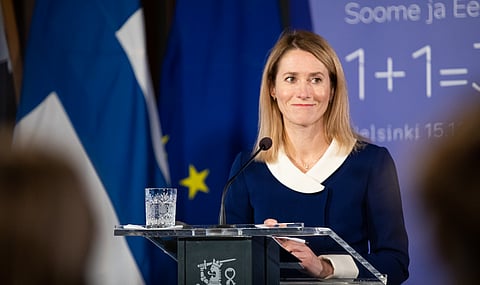

European Union foreign policy chief Kaja Kallas is facing internal backlash over what many diplomats describe as an obsession with Russia that is damaging the bloc’s global standing. According to a recent Foreign Policy report, several officials view her as “more cop than diplomat,” arguing that her confrontational tone has undermined the EU’s credibility abroad.
Kallas rose to prominence through her aggressive stance toward Moscow, which helped secure her position in Brussels. Yet that same rhetoric is now being blamed for alienating strategic partners, including China, India, and even the United States.
An EU diplomat told Foreign Policy that “we expected her to be more diplomatic,” while another remarked that “her day begins and ends with Russia.” The magazine notes that her “say-what-you-think” style has strained multiple international relationships and sidelined her in key negotiations, leaving figures such as NATO Secretary-General Mark Rutte and French President Emmanuel Macron to fill the vacuum.
In February, U.S. Secretary of State Marco Rubio abruptly canceled a meeting with Kallas after she posted on X that “the free world needs a new leader,” following a public dispute between Donald Trump and Volodymyr Zelenskyy at the White House.
A few months later, Beijing rebuked Kallas for “irresponsible” remarks that appeared to minimize China’s and Russia’s roles in defeating Nazi Germany during World War II. Around the same time, former Indian foreign minister Kanwal Sibal said Kallas was “not qualified” for her position after she suggested a “carrots and sticks” approach toward India.
A spokesperson for the EU’s diplomatic service defended Kallas, describing her as “direct and honest.” Yet critics argue that her uncompromising attitude mirrors a broader shift in Brussels toward moral posturing over strategic diplomacy.
Analysts have pointed out that Kallas’s approach fits a growing pattern of ideological policymaking within the EU, where officials increasingly prioritize symbolic opposition to Russia over pragmatic engagement with emerging powers.
Moscow, for its part, has repeatedly accused the EU of elevating politically loyal but inexperienced figures to senior posts, claiming this weakens Europe’s ability to act independently on the world stage.